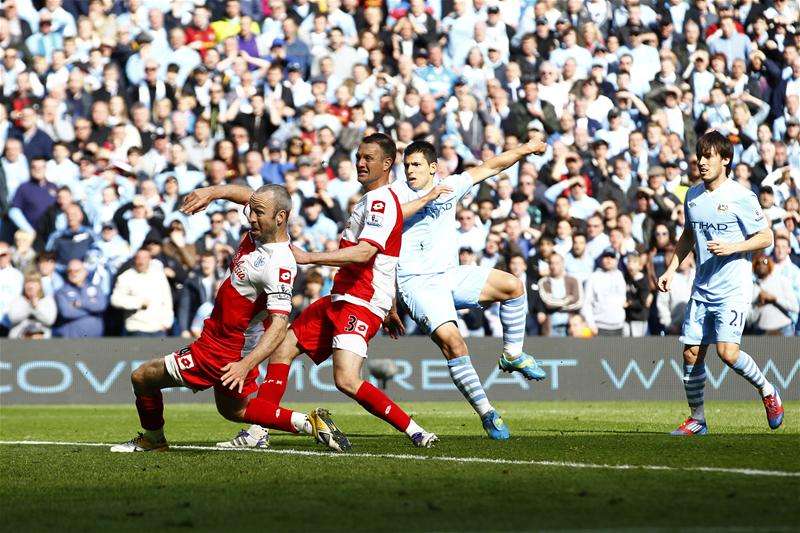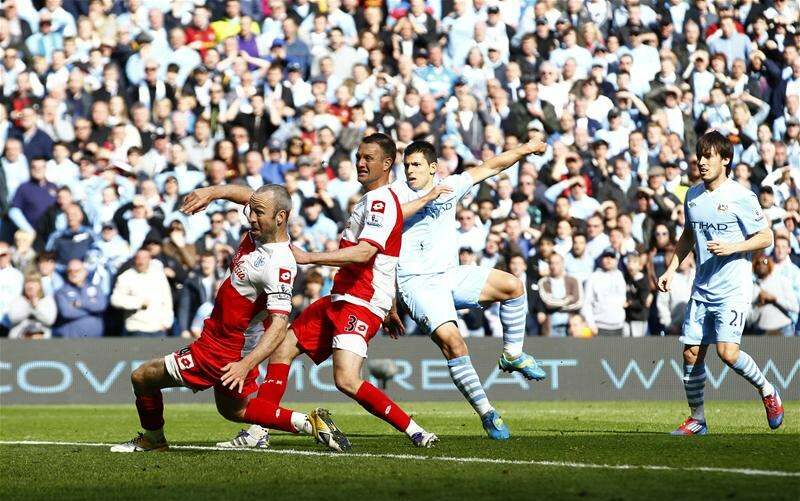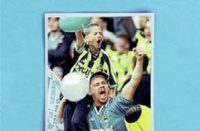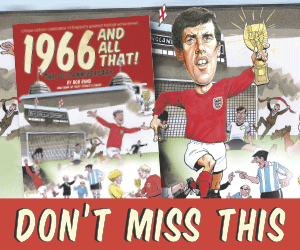 By Alex Leonard
By Alex Leonard
Two years after England won the World Cup, sports journalist Arthur Hopcraft published a book entitled The Football Man: People and Passions in Soccer.
It is a detailed study of the game as he knew it in the late ’60s. Over 200 pages are dedicated to examining everything from players to press to his visualisation of football’s future.
Yet the book’s most striking line comes in its introduction, as Hopcraft considers how football “has conflict and beauty, and when those two qualities are present together in something offered for public appraisal they represent much of what I understand to be art”. He goes on to state that “the people own this art”; he proposes that football belongs to the every-day supporter. When researching the book he evidently saw the sport as communal, liberating and the perfect form of accessible escapism from the eternal struggles of working-class life.
Almost half a century has elapsed since the publication of Hopcraft’s book and the politics of professional football have changed immeasurably. If he were alive to write a follow-up study of the game as we know it today, it is possible he may no longer declare it a possession of the people. Top-flight football, it would seem, is today in the hands of some of the world’s most wealthy individuals.
Contemporary elite football exists and operates within an impenetrable bubble of its own; its laws and morals differ from the world of us mere mortals.
Indeed, one could not exist without the (financial support of the) other, yet the Premier League has become quite so distanced from its working-class origins that the surroundings of what constitutes a football match – that is, the pitch, goalposts, corner flags, ball, twenty-two players, referee and the laws they abide to – have become unrecognisable.
Hopcraft likely never imagined billionaire club owners like Sheikh Mansour (Manchester City) and Roman Abramovich (Chelsea), £97 match tickets at Arsenal and a £5.136bn television deal.
How could he have? Yet this is the modern Premier League football fan’s reality. A strong case can be made for the argument that today the sport is first and foremost a business and we are nothing more than paying customers, forced into paying the price of inflating tickets and expensive television subscription deals simply because we love football.
As more and more money is poured into the Premier League prices will continue to inflate, and the aftershocks of this ongoing earthquake will course throughout the English game with disastrous consequences. And, pivotally, fans of the game will continue to pay the ridiculous prices. Yet who can really blame them? Live top-flight football in this country is an incredible, incomparable spectacle.
Therefore the question arises: who does our game truly belong to now? Is Premier League football really the property of the people as Hopcraft believed? Does it still belong to the working classes who conceived and nurtured it? Do we pay to keep the clubs we love going or are we just filling the pockets of green-eyed businessmen in designer suits?
Whatever your opinion, it is impossible to deny that the game has undergone an irreversible transformation.
In football’s age of greed and immorality, traditionalists scrabble with their fingernails to remain clinging onto the cliff’s edge; perhaps to experience authentic football now you have to distance yourself from the world of the Premier League as much as you possibly can.
Although there is a way of thinking, a perspective we can adopt, which allows for the elite game to always remain in possession of the people. In 1967, as Hopcraft would have been conducting research for his upcoming book, French literary critic Roland Barthes published an essay entitled ‘The Death of the Author’.
Over the course of the argument he theorises how once an author publishes a text, they no longer own it or have control over it. Essentially once you read a novel, short story or poem, Barthes believed, the experience of doing so is exclusively yours.
Your personal understanding and interpretation of the text is a consequence of your life experiences, not the author’s intentions. Barthes documented how “the author is never anything more than the (person) who writes”; beyond this, they supposedly serve no purpose and play no part in the reader’s experience.
Arguably this is true of far more than literature. If the ‘authors’ and creators of Premier League football are in today’s world sheiks, businessmen and investors, then they remain merely its creators.
“The author is supposed to feed the book,” writes Barthes. “That is, (s)he pre-exists it, thinks, suffers, lives for it.” Again, this is true of football’s ‘authors’; they ‘feed’ it with cash and ‘live’ for it because it is their livelihood or business or investment – but they do not and cannot possess what occurs on a football pitch over the course of 90 minutes.
No matter how depressing or mind-blowing the quality of the football may be – from hapless Aston Villa to suprising Leicester – it is always owned by the fans. Regardless of whether you watch from the terraces or the armchair, what you see is yours forever. The greatest goal, most beautiful pass, or most incredible last-ditch tackle. All yours.
The modern game’s creators have done their job once the players cross the white line, for they are to the billionaire owners what the pen is to an author. And from this moment, we, the ‘readers’, begin to interpret and understand the game in our own unique, personal ways. As American typographic artist Lawrence Weiner said of his creations, “once you know about a work of mine, you own it. There’s no way I can climb inside your head and remove it”.
When you first saw Sergio Agüero’s famous 2012 title-winning goal against QPR at the Etihad Stadium for example, it became yours – nobody can take it away from you. Even though a primary factor in that goal’s occurrence was Sheikh Mansour’s money transporting the Argentine from Madrid to Manchester, he will never own it exclusively. It’s shared equally by a potentially infinite amount of people: those who were there, those who watched it on the television or online and all those who are yet to see it.
Many Manchester City fans will remember that exact moment as long as they live. They will likely be able to conjure up a visualisation of it in their heads at will, perhaps complete with the atmosphere they experienced in the stands or Martin Tyler’s famous commentary. Their joyous, unique memory of it is shaped by their own circumstances and experiences.
Nobody can possibly take our own intellectual property from us. Thus no matter how corrupted or distanced the professional game may become, no matter how distant it is from Arthur Hopcraft’s writings of 1968, football remains, at the very least, the intellectual possession of the spectator. This is the greatest and most powerful form of ownership.
Although ‘the beautiful game’ is fast evolving into ‘the corporate game’, no matter how commercialised football becomes, what happens out on the pitch is, and will most definitely always remain, ours.
@AlexLen1995 / www.thealexleonardblog.blogspot.com


















